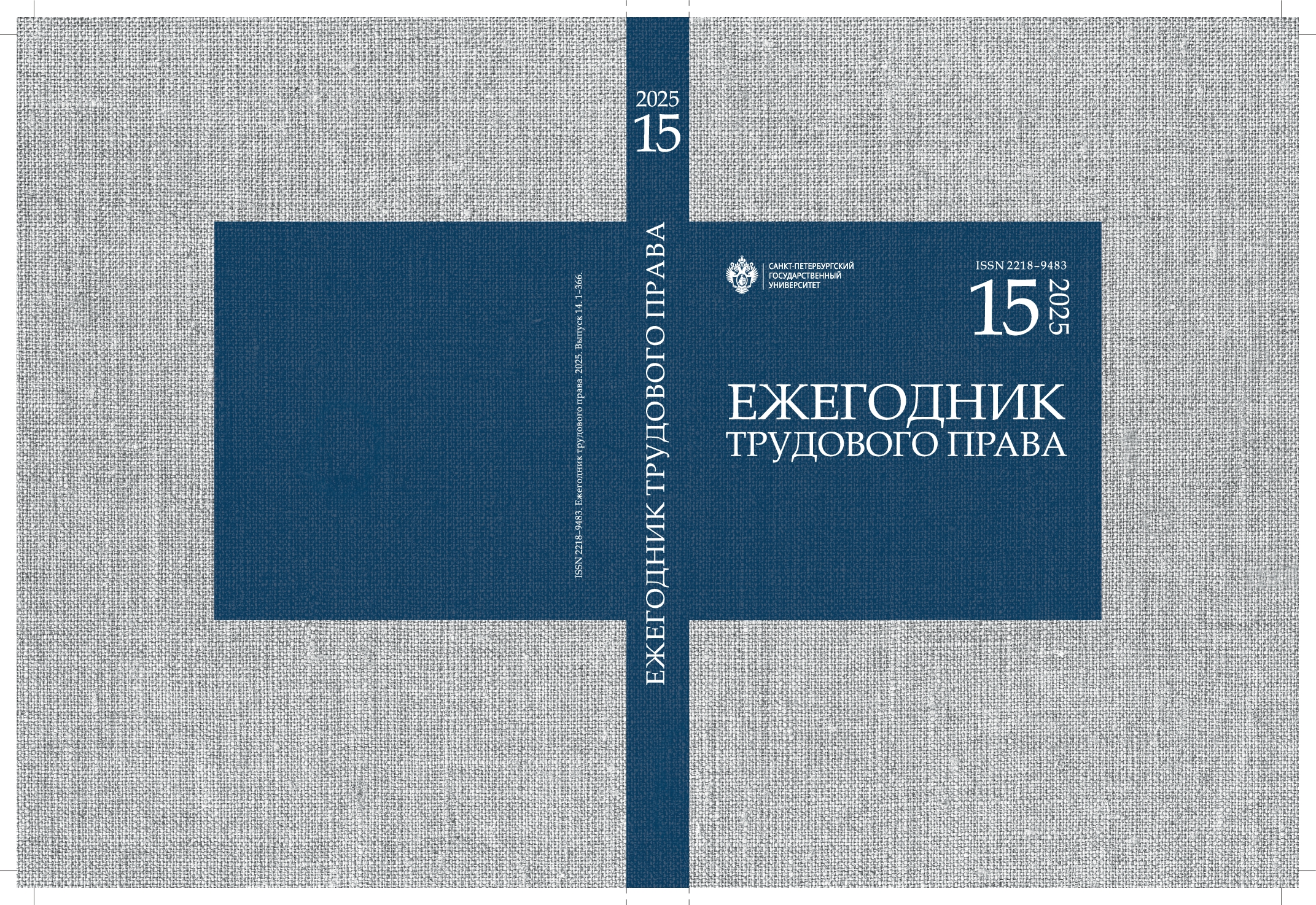Incentive payments in the system of labor remuneration of employees: problems of law enforcement
DOI:
https://doi.org/10.21638/spbu32.2025.115Abstract
Disputes on the recovery of wages from the employer are invariably leading in the ranking of individual labor disputes, which is not surprising, since for many persons working under a labor contract, wages are the main, and often the only, means of subsistence. One of the reasons for the large number of such legal disputes is the approach of the legislator, who attributed the establishment of the remuneration system to the discretion of the employer and allowed him to create the relevant rules independently or within the framework of social partnership. And while the law establishes minimum guarantees for employees with regard to such components of wages as remuneration for labor and compensatory payments, there are no legal provisions with regard to incentive payments, which means that the employer can establish almost any rules in local normative regulation. The subject matter of this article is judicial acts issued in disputes related to the recovery of incentive payments, including bonuses, from employers in favor of employees. Analysis of law enforcement practice leads to the following conclusions. Firstly, courts quite often ignore the issue of determining the legal nature of the collected bonus (despite the fact that the legislation provides for two types of bonuses - a bonus as part of wages and a bonus as an incentive measure), believing that the payment of a bonus is the employer's right, not its obligation. Secondly, even if the legal nature of a bonus as a part of earnings is correctly defined, law enforcers still do not consider the employer obliged to pay it. Thirdly, courts consider the payment of the incentive part of wages to employees within the framework of an effective contract as ordinary bonuses, as a result of which employees are often deprived of payment for a part of their labor. In order to refract the law enforcement trend, the author considers it advisable to improve legislative regulation, which implies the establishment of minimum framework rules on incentive payments.
Downloads
References
Zorina, Ol`ga O. 2019. “Limiting employer's discretion in awarding bonuses to employees: justified need or unjustified interference?” Pravo i e`konomika. 9: 58 - 63. (In Russian)
Karinskij, Sergej S., Margarita I. Kuchma. 1975. “Bonuses for workers and employees of industrial enterprises.” M., Profizdat: 160. (In Russian)
Nogajlieva, Fatima K., i Marina V. Filippova. 2024. “Remuneration of teachers in Russia: Problem statement.” Ezhegodnik trudovogo prava 14: 77–93. https://doi.org/10.21638/spbu32.2024.105. (In Russian)
Salikova, Natal`ya M. 2002. “Wages. Guarantees and compensations.” Ekaterinburg, ICz «Terminal Plyus»: 196. (In Russian)
Salikova, Natal`ya M. 2014. “Effective contract”: a new type of labor contract or a new remuneration system?” Rossijskij yuridicheskij zhurnal. 6: 116 – 120. (In Russian)
Xny`kin, Gennadij V. 2006. “Local regulatory acts on labor remuneration.” Zakonodatel`stvo. 1: 26-34. (In Russian)
Xny`kin, Gennadij V. 2018. “Basic concepts and definitions of wages: losses and gains.” Trudovoe pravo v Rossii i za rubezhom. 2: 28 - 32. (In Russian)
Downloads
Published
How to Cite
Issue
Section
License
Articles of "Russian Journal of Labour & Law" are open access distributed under the terms of the License Agreement with Saint Petersburg State University, which permits to the authors unrestricted distribution and self-archiving free of charge.




